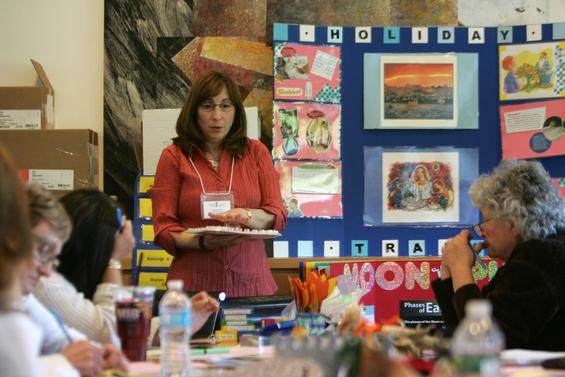By Sandy Miller-Jacobs
Professor, Jewish Special Education, Hebrew College
At a “600” (code for a special services school in a poverty area) elementary school in NYC, five young white student teachers from Queens College arrived on a sunny morning in January. We stood out in this school, where the population was 99 percent black and 1 percent Hispanic. I was assigned to a fifth-grade class with an accomplished female teacher who ran a quiet classroom where students were able to work and achieve, except for Rufus in the front row. She told me not to pay attention to him; she’d referred him for testing and he’d be moving to a special education classroom. “Not my responsibility” was how I understood her. A few weeks went by; I was getting the feel of the classroom, teaching some lessons on my own, and growing increasingly concerned about Rufus. While the other students were busy working on class assignments, he was mostly coloring and looking bewildered. I asked the teacher when Rufus would be tested and how long ago she’d made the referral. She had no idea when the testing would occur, and the referral had been a few months prior to my arrival!
It made me think. Why didn’t this teacher have anyone to ask about how to teach Rufus? Why wasn’t she interested in figuring out how to reach him? If I was going to be responsible for all my students, I clearly needed more skills to be successful. I went on to graduate school in special education and developed a strong belief in the need for professional development and the importance of inclusive education.

Hebrew College offers a variety of professional development opportunities that contribute to enabling all individuals to engage in successful Jewish experiences.
- Our online certificate in Jewish Special Education provides the opportunity to learn with others around the world!
- As part of Jewish Disabilities Awareness Month (JDAM), join us on February 26 from 7-9 p.m. to participate in a book discussion. We’ll discuss the common themes of two books selected by the national JDAM Reads! committee: “Now I See The Moon: A Mother, a Son and the Miracle of Autism” by Elaine Hall and “Front Of The Class: How Tourette Syndrome Made Me the Teacher I Never Had” by Brad Cohen.
- Participate in our fifth annual professional conference, GISHA (Access): Innovations for Inclusion in Jewish Setting, April 28-29. Parents and educators in formal and informal settings will gather to learn in workshops and to hear keynote speaker Dr. Ora Horn Prouser, author of “Esau’s Blessing: How the Bible Embraces Those with Special Needs,” present on “Who Gives us Speech? The Jewish Imperative for Special Needs Education.” Speaker Michael Delman, CEO of Thinking Outside the Classroom, will present on “Won’t, Can’t, Might: Understanding and Working with Executive Function Challenges to Facilitate Academic Progress.”
For more information, please email smillerjacobs@hebrewcollege.edu.
*Photo of GISHA 2012
Sandy Miller-Jacobs is a teacher educator with a passion for including those with special needs in our Jewish communities. She is a professor in Jewish special education at Hebrew College and professor emerita in special education at Fitchburg State University.
This post has been contributed by a third party. The opinions, facts and any media content are presented solely by the author, and JewishBoston assumes no responsibility for them. Want to add your voice to the conversation? Publish your own post here. MORE
